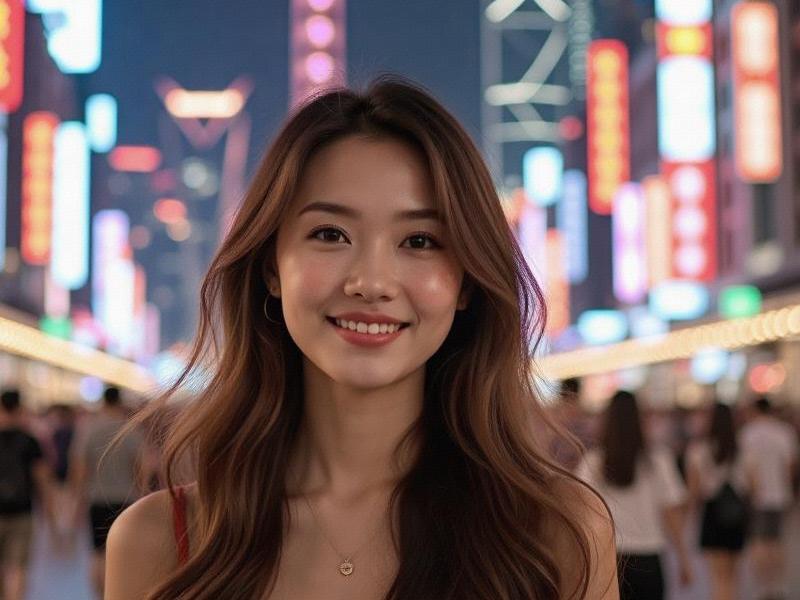This in-depth feature explores how educated, cosmopolitan women in Shanghai are creating new paradigms of Chinese femininity that blend traditional values with modern independence, influencing national beauty standards and gender norms.

The streets of Shanghai tell a story of evolving femininity. In the morning rush at People's Square metro station, sharp-suited executives stride alongside fashion bloggers streaming live to millions. At lunch in Xintiandi, female tech entrepreneurs discuss funding rounds between bites of organic salad. By evening in the French Concession, artists and gallery owners mingle at avant-garde exhibitions. These scenes capture Shanghai's unique phenomenon: a generation of women rewriting what it means to be beautiful, successful and female in modern China.
Demographic data reveals Shanghai's leading position in women's advancement. According to 2024 municipal statistics, women hold 43% of senior management positions in Shanghai-based companies - nearly double the national average. The city boasts China's highest concentration of female-founded startups (38%) and the nation's most educated female population, with 62% of women aged 25-34 holding university degrees. This professional ascendancy coincides with shifting beauty ideals documented by Shanghai Jiao Tong University's annual Lifestyle Survey, which shows declining interest in traditional "pale, delicate" aesthetics in favor of "healthy, confident" appearances among Shanghai women under 40.
新夜上海论坛
The new Shanghai beauty paradigm manifests physically and philosophically. Dermatology clinics report surging demand for "natural enhancement" procedures rather than dramatic transformations, while luxury gyms like Physique 57 and Pure Yoga see membership among local women triple since 2022. "Shanghai women want to look like the best versions of themselves, not someone else," explains celebrity stylist Lina Zhang, whose clients include prominent businesswomen and cultural figures. This ethos extends to fashion, where local designers like Helen Lee gain international acclaim for collections blending qipao silhouettes with contemporary functionality.
上海龙凤阿拉后花园
The economic impact is profound. Shanghai's "pink economy" - products and services catering to professional women - grew 28% last year to reach ¥87 billion ($12 billion), according to Deloitte China. Women-centric co-working spaces like HER Planet and Ladyspace now dot the city's business districts, while female-focused investment clubs have emerged as powerful funding networks. Even real estate adapts, with developers incorporating larger closets, smart kitchens and private yoga studios into high-end apartments marketed to unmarried female buyers - a demographic that's tripled in Shanghai over the past decade.
上海贵族宝贝sh1314
Cultural observers note how Shanghai women navigate complex identities. Many embrace both feminist ideals and filial piety, career ambition and culinary skills. "We reject false choices," says tech CEO Fiona Chen, 32, who brings her mother to weekly tea ceremonies while running a billion-yuan AI company. This synthesis appears in popular media too - hit web series "Shanghai Girls" portrays multidimensional female friendships beyond romantic plotlines, garnering 800 million views last season.
As Shanghai positions itself as a global city, its women serve as cultural ambassadors of this new Chinese femininity. Their version of success - financially independent yet family-oriented, globally minded yet locally rooted, ambitious yet balanced - offers an alternative template that's distinctly Shanghainese yet increasingly influential across China. In doing so, they're proving that modern beauty isn't just about appearance, but about the power to define one's own identity in a changing world.